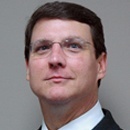
Kerry Cole
June 3, 2020
Keynote Speaker Says Self-Driving Cars Just the Beginning of Exponential Change

Self-driving cars may be the norm sooner than we think, and they won’t be the only disruptive change coming to our society, author, strategist, and lecturer Tarun Wadhwa told his Congress Xstream audience during the Wednesday, June 3, General Session.
In “Money, Work, and Life in Exponential Times,” sponsored by DailyPay, Wadhwa compared the expected impact of self-driving cars to financial changes technology will bring.
“Could you imagine going through an intersection where nobody stops?” he asked. “When cars are computers that can t alk to each other rapidly, we can rethink how cars fundamentally move and interact with each other, and as a result, that’s going to take a lot of familiar things and make them obsolete.”
alk to each other rapidly, we can rethink how cars fundamentally move and interact with each other, and as a result, that’s going to take a lot of familiar things and make them obsolete.”
Wadhwa said the emergence of driverless cars being commonplace is no longer a question of if but when.
“When you take something physical and make it digital, it takes on all sorts of new capabilities and capacities,” he said. “Clearly it will be a boon for safety to have that kind of visibility, but what else becomes possible? When you add computers to something, it doesn’t become smart; it becomes entirely new.”
The same idea can be applied to Zoom meetings, which during the pandemic have proven to leave a lot to be desired, he said, and predicted that headsets will get smaller and visuals will improve, leading to better virtual meetings in the future.
“Our expectations will change as it advances, and we will start to feel that amazement where we previously felt disappointment,” he said.
He cited the burgeoning improvement of cell phones through time as an example of exponential improvement in technology. The race to create better smartphones made their components cheaper, leading to new and better products.
He expects a similar path for finance in the United States, anticipating decades of change within years.
“We are going to use all of this data collected to create all sorts of new products, platforms, and services,” Wadhwa said, “That’s going to improve the quality of our daily lives significantly.“
Although Americans haven’t truly embraced new ideas in finance, such as bitcoin, he predicts that the coronavirus pandemic will change that.
“The biggest change of all in the United States is still coming, and that is that the technology companies will become the new banks,” he said.
What does this mean for the workforce of the future? Wadhwa says:
- Hybrid is the new normal—Working remotely is here to stay for good
- Everything that can be digitized will be digitized—Everything is connected and will reside in the cloud
- We are always on, always connected, always working—Artificial intelligence will become a regular part of the office
- Companies will be constantly dealing with new types of threats—Employees will be on the front lines in preventing fraud and forgery
“All of this means massive change in the way people work,” Wadhwa concluded. “Identity, reputation, and transaction are going to become key to nearly everything. We are living in the most innovative time in human history. The coronavirus just accelerated what was already happening.”
Wadhwa's presentation--which included deep fake videos and other forms of fakery--fascinated and frightened many Congress attendees who commented in the chat.
"I'm scared now," Cari Breitinger wrote. "Cars driving themselves, voice imprints that aren't real, photos you cant trust ... payroll and security are going to get really tough."
Ronald Moser, CPP, took a long view of the exponential growth.
"We do have to drive change in order to move our career and company forward," he wrote, "But we need to do it with awareness and expert planning."




